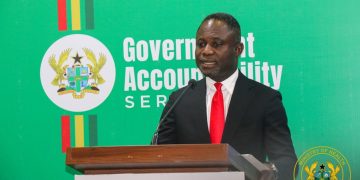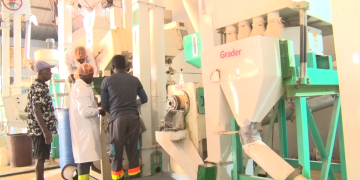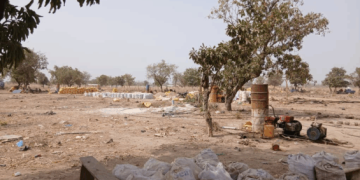A leading forensic pathologist and senior lecturer at the Kwame Nkrumah University of Science and Technology (KNUST), Prof. Paul Ossei Sampene, has made a compelling case for the introduction of Emergency Medical Care systems in Ghana’s Parliament.
His call comes on the heels of growing concerns about the lack of emergency medical services within the parliamentary premises, a situation he describes as both alarming and avoidable.
The issue was first raised by Prof. Dr. Grace Ayensu-Danquah, Member of Parliament for Essikado-Ketan and a trauma surgeon, during a parliamentary session on January 29, 2025. Speaking passionately on the floor of the House, she highlighted the urgent need for first aid measures, including Automated External Defibrillators (AEDs) and emergency response training for parliamentary staff.
Prof. Ayensu-Danquah lamented the absence of basic emergency medical kits and services for lawmakers and their staff, stressing that such deficiencies could have dire consequences in life-threatening situations. Her concerns have since sparked a broader conversation about the health and safety of Ghana’s legislators.
In an interview with Millicent Safo-Adu on Bresosem at Abusua 96.5 FM, Prof. Sampene took the conversation a step further, advocating for parliamentarians to submit their medical records as part of their public service obligations just as they are required to declare their assets.
He said “As someone who conducts extensive research and publishes papers on psychiatric-related conditions, which border on psychiatry, I believe that individuals, especially those in high-ranking positions, should be required to declare not only their assets but also their health and medical records, including mental health assessments. These records should be subject to periodic review to ensure they are fit both physically and mentally to serve”.
Prof. Sampene expressed concern that some Members of Parliament (MPs) may be battling undiagnosed mental health conditions, which could affect their decision-making and performance in office.
“If you recall, I’ve said this before: politicians, from the Presidency down to the staff, must have their medical records made available. It’s very important to have this information, especially considering what’s happening. what we see happening in our political cycle is not normal. Some MPs may be dealing with mental disorders, and this must be addressed,” he emphasized.
Why Emergency Medical Care Is Non-Negotiable
Prof. Sampene outlined several reasons why an Emergency Medical Care system is critical for Ghana’s Parliament:
1. Health Emergencies: MPs and staff face risks of sudden medical conditions like heart attacks, strokes, or respiratory issues due to stress or pre-existing conditions.
2. Long Working Hours: Intense parliamentary sessions often lead to exhaustion, dehydration, or high blood pressure—factors that increase the likelihood of medical incidents.
3. Accidents and Injuries: Mishaps within the parliamentary premises may require immediate attention.
4. Security-Related Incidents: Protests or security breaches could result in injuries requiring urgent care.
Prof. Sampene emphasized that “having medical care on-site ensures timely intervention during life-threatening situations before transfer to a hospital”.
Learning from Global Best Practices
Prof. Sampene pointed out that many advanced democracies have already adopted emergency medical systems in their legislatures. Countries like the United Kingdom, United States, Canada, India, Australia, and members of the European Union have established robust systems to safeguard the health of lawmakers, staff, and visitors.
He emphasized the importance of having trained health practitioners, devoid of politics, to ensure a smooth process of Emergency Medical Care in Parliament of Ghana.
“These countries have trained doctors, paramedics, nurses, and other health professionals stationed within their parliaments. Importantly, these professionals operate independently of political influence to ensure impartiality and efficiency”, Prof Sampene explained.
He noted that adopting such systems would not only enhance safety but also demonstrate Ghana’s commitment to prioritizing the wellbeing of its leaders.
“Having medical care on site ensures timely intervention, which can be critical in life threatening situations before transfer to the hospital”
He added “Emergency Medical Care in Parliament House is a standard practice in many countries to ensure the wellbeing of lawmakers, staffs and visitors”.
What Ghana’s Parliament Needs
To implement an effective Emergency Medical Care system, Prof. Sampene proposed several key measures:
• Establishing First Aid Stations equipped with essential supplies.
• Installing Automated External Defibrillators (AEDs) at strategic locations.
• Employing well-trained medical professionals, including doctors and paramedics.
• Conducting routine health check-ups and providing vaccinations for MPs and staff.
• Offering mental health services to address stress-related conditions.
• Ensuring an ambulance is on standby for emergencies.
Prof. Ossei Sampene concluded by urging Ghana’s Parliament to take swift action in adopting these measures, emphasizing that such systems would not only save lives but also enhance productivity within the legislative arm of government.
www.kumasimail.com /Kwadwo Owusu


































































